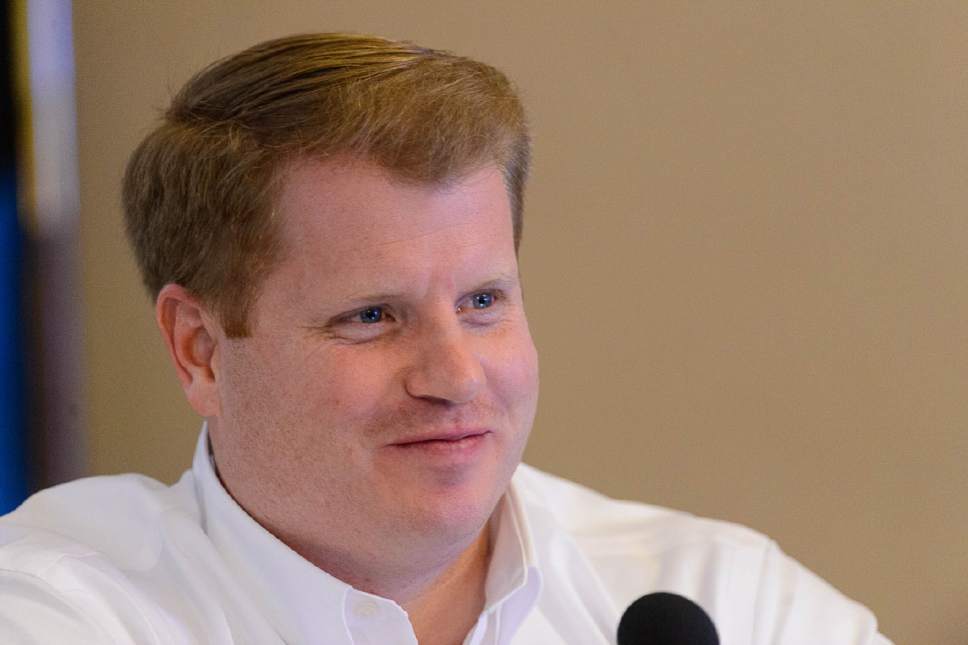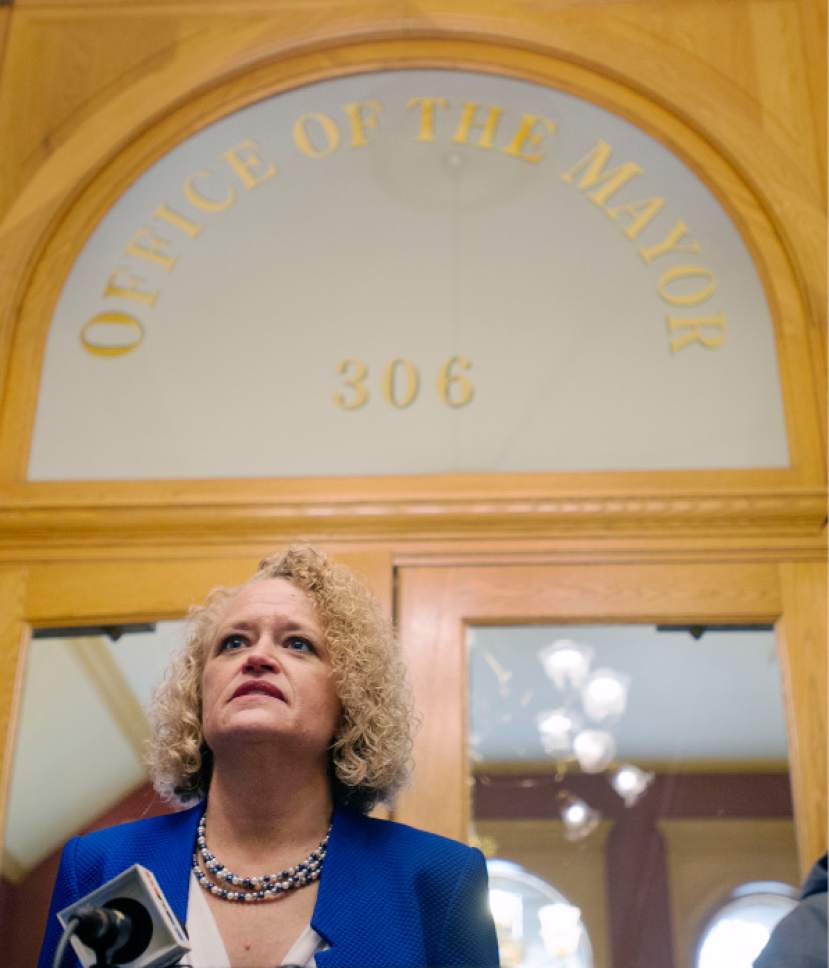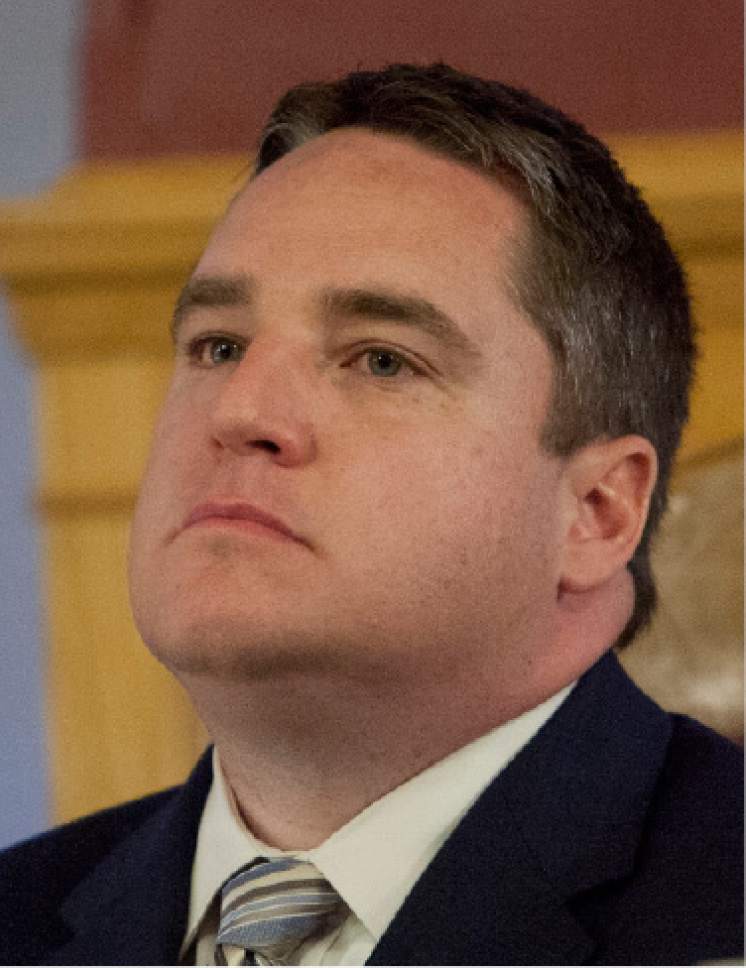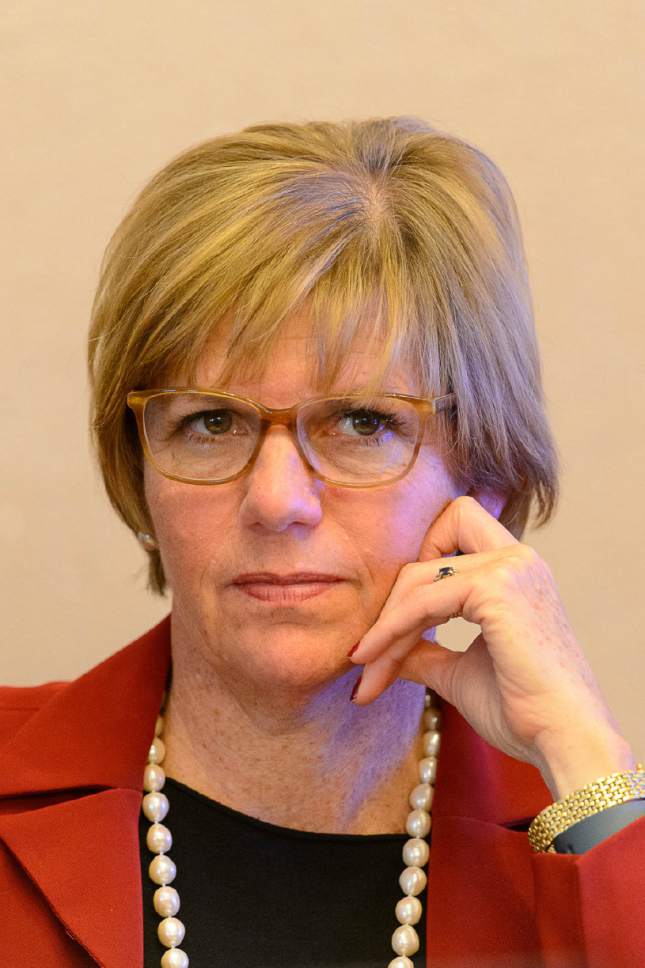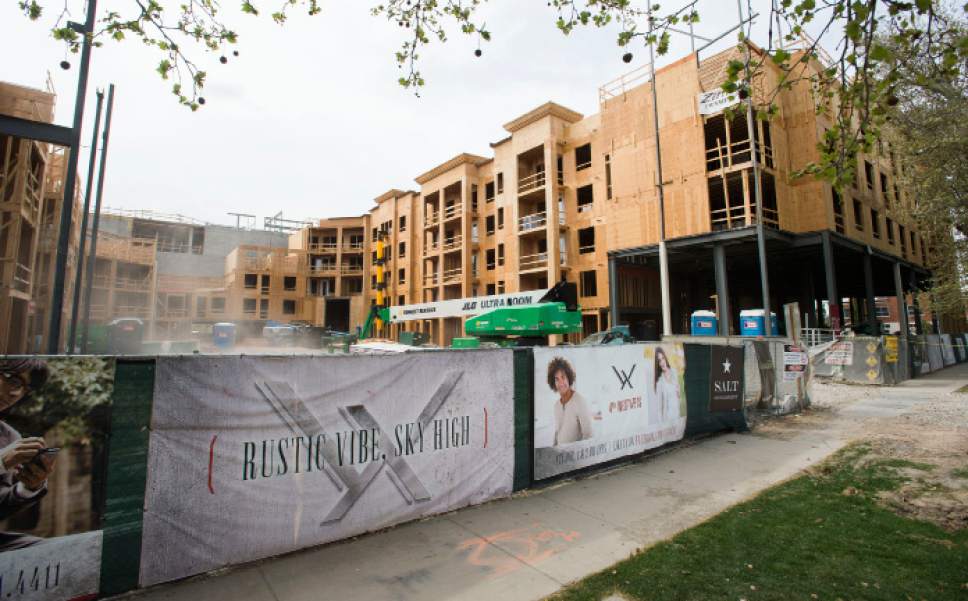This is an archived article that was published on sltrib.com in 2016, and information in the article may be outdated. It is provided only for personal research purposes and may not be reprinted.
Salt Lake City Mayor Jackie Biskupski's proposed 2016-17 budget is tighter than bologna skin, but City Hall still hasn't figured out how to spend millions in impact fees.
In October, the City Council, in a split 4-2 vote, adopted then-Mayor Ralph Becker's proposal to place a moratorium on the fees assessed on new development. The moratorium ends Nov. 1.
Jill Love, Becker's director of community and economic development, said then that the moratorium would give the administration time to reform the system to better coordinate the collection of impact fees with the construction of new parks, firehouses and other amenities.
The city has collected more than $21 million in impact fees, with $8.3 million of that allocated to projects underway or set to begin.
If the fees are not spent within six years, they must be returned to developers, according to state law. Salt Lake City has begun the payback process with a few developers, according to council members.
Impact fees are designed to maintain municipal service levels as populations grow. But the monies can not be used for maintenance, like repaving roads, upkeep on parks or buffing up existing facilities — areas where the municipality is strapped.
Nonetheless, impact fees could be used on new projects and that, theoretically, would free up funding for maintenance. The mayor's proposed budget does recommend spending $2.5 million in impact fees, some earmarked for the construction of a new firehouse — Station 14.
Neither the council nor Mayor Jackie Biskupski could add much insight into the issue.
In a meeting last week with the Tribune's editorial board, the mayor said she hoped the council could find a solution before Nov. 1, so the moratorium could be lifted.
During the fall political campaign, Biskupski said the moratorium was not a good idea. She added, however, that Salt Lake City impact fees are too high.
In April 2014, the council boosted impact fees to take advantage of a boom in construction of apartment buildings. Developers and business leaders criticized the increase and the city's inability to put the fees to work.
There does appear to be confusion on who should take the lead on reframing the city's impact fees program.
Council members say it is the administration's responsibility to determine collection and expenditure of the monies.
Councilman Charlie Luke noted, however, that council's staff also is looking into the matter.
"The problem is, the way the state law is written, it seriously limits the way you can spend the money," he said. "If you don't spend it, you have to give it back. We need to figure it out sooner rather than later."
Council Chairman James Rogers said he is waiting for the mayor to propose changes to impact fee collections and expenditures. Last year, he said, the Becker administration hired a consultant to do just that.
Rogers said the city must determine if its impact fees are too high or too low and find more creative ways to spend the money. Collecting impact fees and then returning the unspent money, he said, is "bad policy and poor planning."
But a spokesman for the mayor said the administration is not aware of such a consultant. Matthew Rojas said the new administration believed the council was studying the issue and that he had no information that a consultant contract was let by the Becker administration.
Among the challenges, said Councilman Stan Penfold, is that in many instances, according to state regulations, impact fee funding must be matched with money from the general fund.
"So, if you have a limited budget, like we do, it's hard to come up with the [matching] money," he said.
The municipality should develop a strategy of earmarking matching general fund monies for projects before impact fees are collected, Penfold said. He hopes the city can find a solution by Nov. 1.
If Salt Lake City can't determine how to spend the money legally, said Councilwoman Lisa Adams, it may want to approach state lawmakers to loosen regulations in order to gain access to the funding.
"It would be great to spend the money that's there," she said. "But until we do, it's not great."


